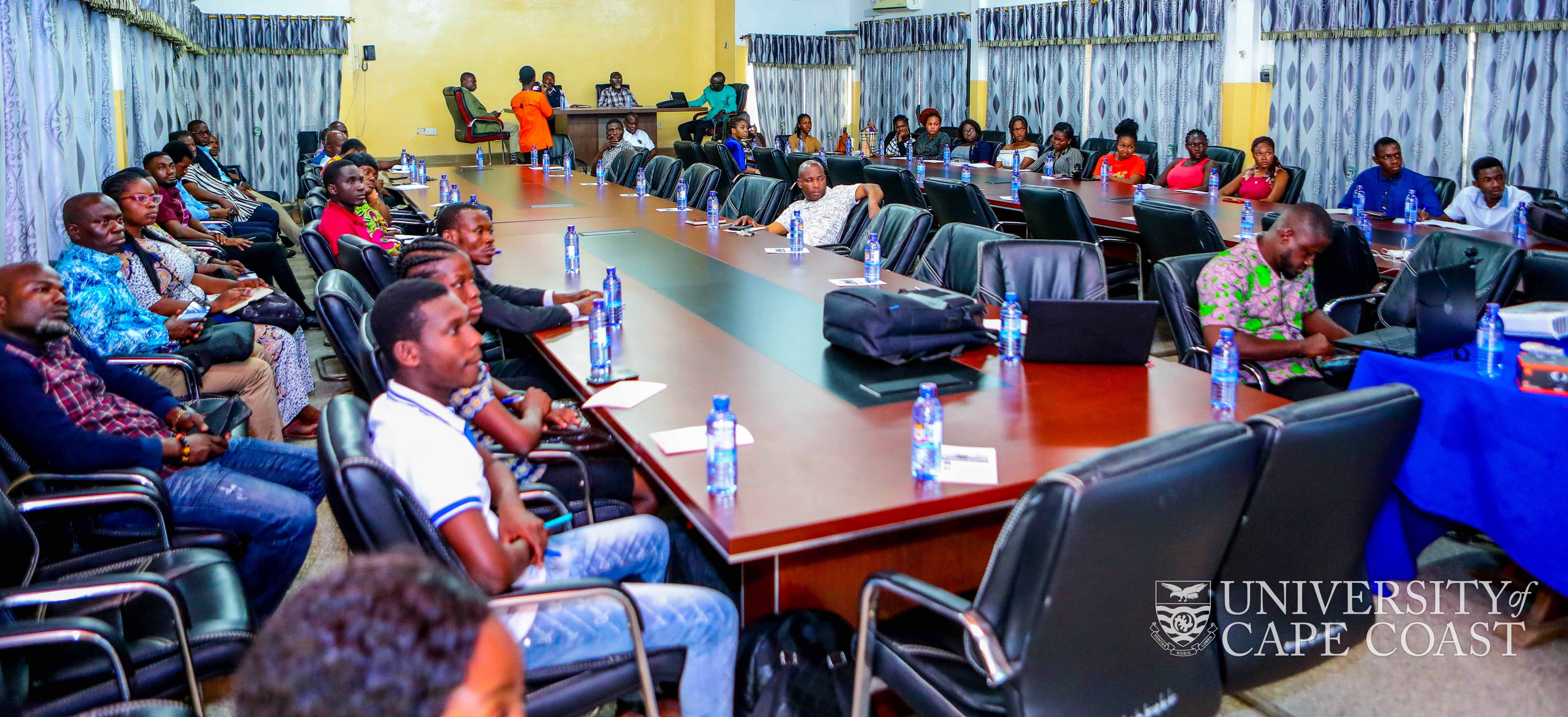A Food Integrity expert, Prof. Ernest Teye, says the lack of capacity for farmers to authenticate fertilizer integrity can be attributed to the reduction of crop yields across the country.
According to him, unsuspecting farmers were either using fake, expired or adulterated fertilizers on the market in their farms, affecting the nutrient contents of the soil to enhance yield.
To authenticate fertilizer integrity, Prof. Teye, who is also at the Department of Agricultural Engineering-UCC, called for the use of a portable sensor technology handheld device called Near-Infrared (NIR) spectroscopy, which is also used for the measurement of Agrochemical inputs, food quality and food fraud.
Prof. Teye was speaking at a research seminar organized by the School of Agriculture on the topic, "Promoting Food and Agricultural Input Integrity: The Way Forward."
Explaining further, he said he and his research team separated fertilizers into three categories: authentic, fake and adulterated fertilizers. According to him, the team used the NIR spectroscopy device to authenticate the fertilizer integrity without sending the fertilizer category samples for laboratory test.
Participants in the seminar
The Food Integrity expert continued, “Again, we also know that farmers are aware that sometimes they apply the fertilizer and they do not get the yields even though its written ‘fertilizer A’ on it but it could be that they have put in ‘fertilizer B’. So, with this technology, the farmer will be able to predict.”
Prof Teye mentioned the enormous benefits the portable sensor brings to Ghana, including generation of money from crop exportation. He said the research was crucial to the socio economic development of Ghana.
"Yield will increase, quality will increase and this research will even impact on the farmer to generate money and impact on the environment” he added.
The portable sensor, he added, could be used for soil classification or land use type, as well as used for simultaneous prediction of nitrogen, potassium, Calcium, potential hydrogen (ph) and magnesium.
Prof. Teye noted that he and his research team would soon train farmers on the use of the portable sensor devise. "...if you can make a call, WhatsApp, Facebook, it is also simple to be able to use this technology.
Our next thing is to train farmers and with this I am sure they can go forward" he concluded.
At the function, the Agribusiness Programme Coordinator with the Department of Agricultural Economics and Extension-UCC, Dr. Alex T. K. Nuer, took participants through the topic, “Imbibing Sustainability Mindset Tools as a Responsible Management Education Pedagogy in Teaching Agribusiness Management: Insights, Contestations and Way the Forward." The Dean of the School of Agriculture, Prof. Henry De-Graft Acquah, chaired the Seminar.
Source: Documentation and Information Section-UCC


